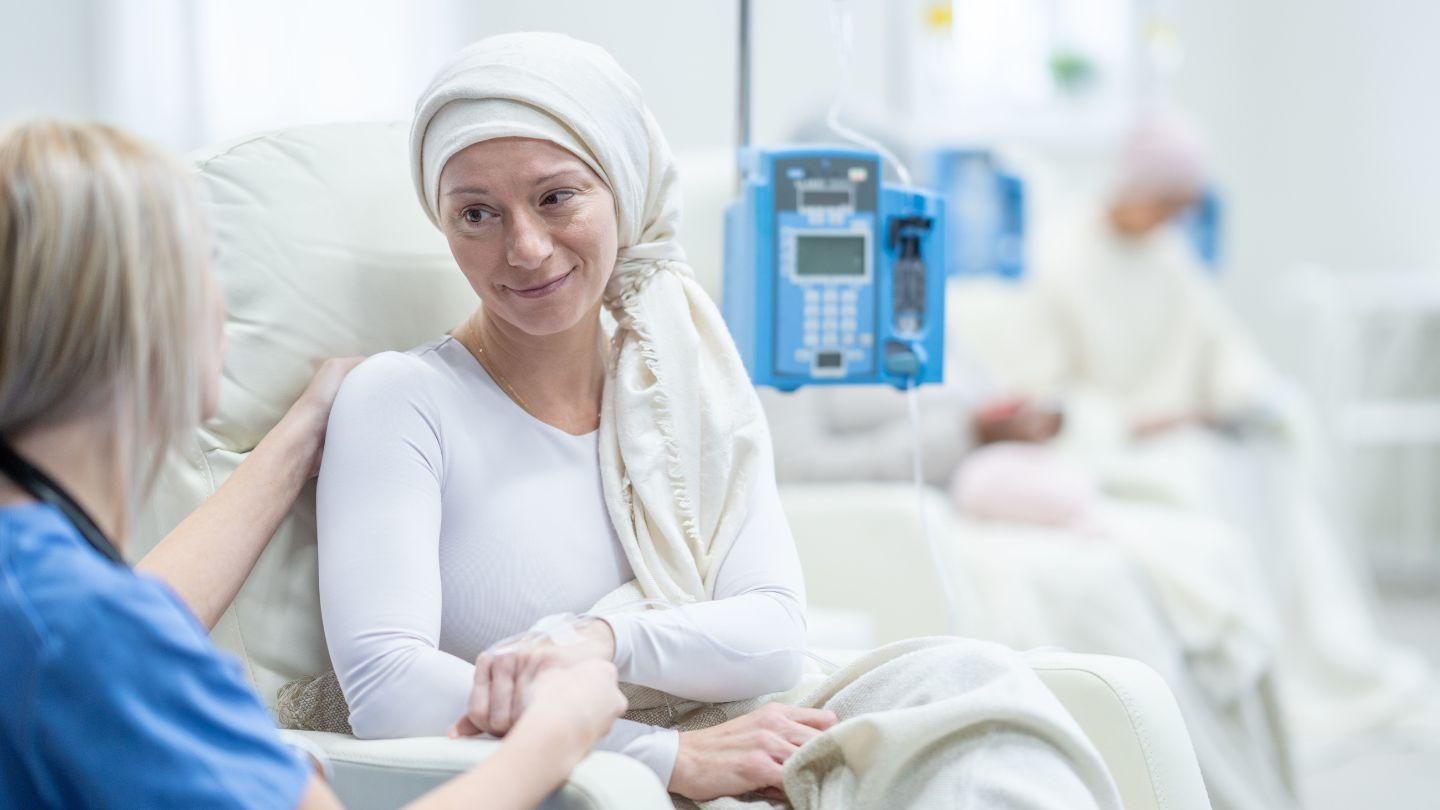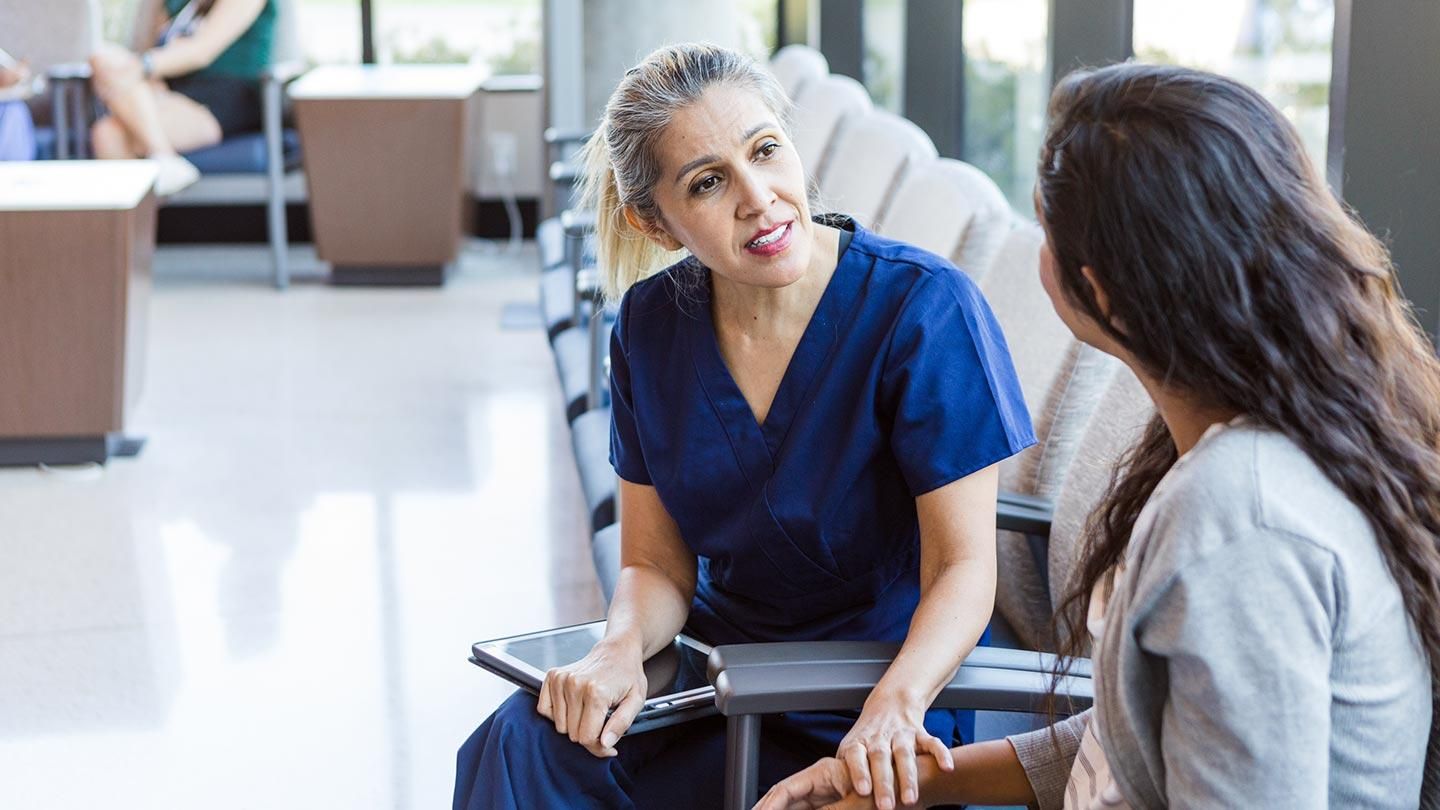
Oncology nurses distinguish themselves from other nursing specialties through their exclusive focus on cancer care. Their expertise encompasses a specialized set of abilities and knowledge that is crucial for administering intricate treatments, as well as offering vital emotional support to patients. This blog explores the particular duties they perform and the effect these responsibilities have on patient outcomes.
Key Takeaways
- Oncology nurses provide specialized care for cancer patients, addressing treatment side effects and emotional support throughout their journey, including survivorship.
- Continuous education and specialized certifications are vital for oncology nurses to stay updated on cancer treatments and ensure high-quality patient care.
- Strong patient relationships and collaboration within multidisciplinary teams significantly enhance patient outcomes, ensuring comprehensive and coordinated cancer care.
Unique Responsibilities of Oncology Nurses
Oncology nurses play a critical role in improving the lives of cancer patients by providing specialized care that caters to the intricate demands of oncology treatment. These dedicated professionals go beyond general nursing functions, administering expert care for side effects and offering emotional support as part of their compassionate service during a patient’s experience with cancer.
These nurses not only contribute to better health outcomes through promoting lifestyle changes and early detection but also empower patients with knowledge on managing symptoms and mitigating the adverse effects of treatments. As advocates, they facilitate integrated care while addressing both medical needs and psychological aspects associated with cancer therapy, ensuring all-encompassing assistance is available.
Oncology nurses provide continued attention to individuals who are in remission—guiding them throughout their recovery—and adaptively tailor their practices based on various factors such as work environment, patient demographics, or specific types of cancer encountered. Their responsibilities exemplify diversity and complexity within this ever-evolving field.
Specialized Knowledge and Skills
Oncology nursing necessitates a comprehensive grasp of cancer biology, which is critical for providing informed care to patients following their diagnosis. Such expertise allows these nurses to implement evidence-based methods and efficiently utilize tools for managing symptoms. They play an indispensable role in ensuring patient safety and delivering high-quality care by adeptly handling oncologic emergencies.
It’s imperative for oncology nurses to stay abreast with the most recent breakthroughs in cancer treatments and therapies. Their commitment to ongoing education guarantees that they offer up-to-date and effective treatment strategies. Part of their responsibility includes incorporating innovative treatment approaches into practice and imparting knowledge about these advancements to their patients.
Equipped with robust critical thinking skills alongside sharp problem-solving capabilities, oncology nurses expertly navigate through the intricacies of administering cancer care. They are often presented with scenarios demanding immediate decisions while adjusting swiftly to evolving conditions pertaining to patient health. This unique combination of specialized acumen coupled with hands-on proficiency sets them apart from other nursing specialties, thereby fostering exceptional delivery of patient-centered care.
Emotional Resilience and Support
The provision of emotional and psychological support by oncology nurses is essential in improving the quality of life for their patients. Establishing trusting relationships helps patients feel secure and understood, allowing them to receive effective emotional care. These nurses have the aptitude to spot signs of emotional distress in patients and adapt their support according to each patient’s unique circumstances.
If a patient struggling with cancer faces emotional turmoil, it can be challenging for them to cope. Routine check-ups from oncology nurses are indispensable. They play an integral part in identifying these stress factors promptly, ensuring that both the mental health needs of patients and those family members under pressure during treatment periods are met.
Owing to their emotionally taxing responsibilities, oncology nurses may confront burnout risks themselves. To avert such outcomes, they must prioritize self-care practices and utilize support systems available among peers as well as professional counselors. Engaging in workshops focused on managing stress or participating in peer-support circles are beneficial methods that provide coping mechanisms necessary for sustaining one’s own psychological fortitude.
Dedicating attention equally to caring for both themselves and their patients effectively prevents burnout among nursing staff. This allows oncology nurses the capability to persistently deliver empathic yet proficient care, which profoundly supports patient welfare.
The Importance of Patient Relationships

Oncology nurses play a pivotal role in developing meaningful connections with patients and their loved ones, fostering trust and compassion through these bonds. These professionals provide stability and consistent care, which reassures patients throughout their treatment journey. They serve as patient advocates, interpreting intricate health information to ensure patients are well-informed and actively participating in their own care.
It’s essential for oncology nurses to be involved in a clear dialogue that allows them to impart knowledge regarding various treatment options and available support systems to both the individuals undergoing treatment and those caring for them. By representing the distinctive healthcare needs of each patient within the planning stages of treatment, oncology nurses empower them to feel more autonomous regarding their well-being—thereby nurturing an atmosphere ripe with support and confidence.
When it comes to outpatient services, oncology nurses act as a reassuring touchpoint during continuous therapy sessions by providing unwavering care coordination alongside transparent lines of communication. Their dedication is instrumental in augmenting patient contentment with regard to overall experiences received during this challenging time period—a testament to the integral part they occupy within cancer caregiving’s all-encompassing framework focused on delivering thorough backing across every aspect of one’s fight against cancer.
Educational Pathways and Certifications
The journey to become an oncology nurse involves acquiring the appropriate educational background. Individuals who aim to enter this field need first to gain their credentials as registered nurses, which requires completing either a two-year associate degree or a four-year Bachelor of Science in Nursing (BSN). Subsequently, specialized training and experience specific to oncology nursing are required for one to fully qualify as an oncology nurse.
Certification in oncology nursing serves as official recognition of a nurse’s proficiency in providing care for cancer patients. To obtain this certification, applicants must maintain an active RN license, accumulate at least two years’ worth of professional nursing experience, and log 2,000 hours working with adult oncology within the preceding four years. They must have successfully completed a graduate-level course on oncology or its equivalent through continuing education over the past five years. The Oncology Nursing Certification Corporation acknowledges that these stringent criteria ensure that certified nurses possess the comprehensive knowledge and competencies necessary for delivering superior cancer treatment.
For those serving within the realm of cancer treatments, such as chemotherapy administrations, ongoing education is critical largely because it equips them better against emerging trends. Obtaining advanced certifications like being recognized as an Advanced Oncology Certified Nurse Practitioner (AOCNP®) not only bolsters one’s reputation but also opens up avenues for professional growth.
To embody excellence in cancer care consistently necessitates dedication toward continuous learning and skill enhancement among professionals. Values that are staunchly advocated by bodies like the Oncology Nursing Society.
Advanced Practice Roles in Oncology

Advancement in the field of oncology nursing is essential for both personal and professional development and for enhancing the care given to cancer patients. This advancement can take the form of elevated positions, such as becoming an oncology nurse practitioner or earning specialized certifications, which empowers nurses with more responsibility and a larger role in influencing outcomes within oncology.
Oncology nurse practitioners are higher-level healthcare professionals who provide all-encompassing patient care. Their responsibilities encompass performing thorough physical examinations, ordering and interpreting necessary diagnostic tests, and devising comprehensive treatment strategies while collaborating with other medical experts. As highly proficient figures in health management, they play a pivotal role in supervising intricate patient cases demanding considerable proficiency.
Procuring specialized qualifications like those offered through Oncology Certified Nurse (OCN®) programs or achieving certification as a Pediatric Hematology Oncology Nurse reinforces one’s expertise within particular areas of this nursing sector. Holding such credentials elevates not only the professional stature but also improves how patients fare by ensuring that their care is administered by exceptionally trained individuals. The pursuit of these advanced roles and recognitions reflects an unwavering commitment from those practicing in oncological nursing towards betterment in their career paths, along with optimal patient wellness within this specialty branch of medicine.
Collaborative Multidisciplinary Teams
As the pivotal element among healthcare professionals, oncology nurses are vital in providing cohesive and thorough care for individuals battling cancer. These nurses work alongside a diverse team composed of nurse practitioners, doctors, registered nurses, and therapists, among others. The collective aim is to deliver all-encompassing care through proficient communication skills utilized by oncology nurses as they orchestrate patient care management and tend to their needs.
The joint efforts amongst this group of medical experts strive to lessen the toll of cancer while enhancing results for patients. They convene regularly for meetings that allow them to share valuable insights that aid in refining and personalizing patient treatment strategies. In these gatherings, it’s often the role of the nurse to facilitate effective interaction between disciplines, ensuring that concerns relating specifically to patients’ well-being are adequately relayed.
Oncology nurses Demonstrate crucial coordination within multidisciplinary teams by navigating intricate aspects of cancer therapy with an eye toward advancing patient outcomes. Their leadership fosters environments where open dialogue flourishes and each professional’s input is appreciated—cornerstones necessary for achieving comprehensive cancer therapy centered on the individual needs of patients.
Impact on Patient Outcomes
Oncology nurses profoundly impact patient outcomes by using behavior-change techniques to empower patients and caregivers in managing cancer-related symptoms and treatment side effects. They provide personalized education, tailoring information to patients’ health literacy levels to facilitate informed treatment decisions. The patient-provider relationships significantly affect patients’ ability to manage cancer and overall satisfaction with care.
Multidisciplinary teams in oncology improve patient outcomes by enhancing communication and coordination among healthcare providers. Models like tumor-specific clinics and regular team meetings ensure comprehensive, coordinated care. Oncology nurses play a crucial role in managing cancer symptoms and treatment side effects, enhancing patients’ quality of life.
By participating in clinical trials, oncology nurses advance cancer treatment options and improve care methodologies. Their involvement in research ensures that patients receive the most effective and innovative treatments. This dedication to improving patient outcomes exemplifies their commitment to excellence in cancer care.
Self-Care and Burnout Prevention

Oncology nurses should take care of their emotional health to avoid burnout. Strategies they might adopt include:
- Focusing on self-care practices
- Communicating with colleagues for support
- Consulting professional counselors when necessary
- Participating in relaxing activities, such as yoga or receiving massages
Engaging in these strategies can greatly improve self-care efforts and help mitigate the risk of burnout.
By taking regular vacations or personal days, oncology nurses can restore themselves and effectively manage stress levels.
The Unique Role of Oncology Nurses
Oncology nurses play a vital role in the healthcare system, offering a combination of specialized medical expertise and compassionate care. What sets them apart is their unwavering dedication to both the physical and emotional well-being of cancer patients and their families. Through their knowledge, empathy, and ability to build strong relationships, oncology nurses ensure patients receive the highest standard of care during their cancer journey. Their commitment to continuous learning and professional growth further distinguishes them from other nursing specialties.
At Guideway Care, we understand the challenges oncology nurses face, including those in oncology nurse navigator roles, as they strive to provide exceptional care. With over a decade of experience, we offer solutions that reduce barriers to care and address social determinants of health, helping both healthcare professionals and patients achieve better outcomes. Ready to see how we can empower your team and enhance patient care? Contact us today to learn more!
Frequently Asked Questions
What educational qualifications are required to become an oncology nurse?
To become an oncology nurse, one must obtain a nursing degree, either an associate’s degree or a Bachelor of Science in Nursing (BSN), and pass the NCLEX-RN exam to become a registered nurse.
This foundational qualification is essential for a career in oncology nursing.
How do oncology nurses support patients emotionally?
Oncology nurses effectively support patients emotionally by building trusting relationships and recognizing their emotional distress, allowing them to tailor care to meet each individual’s needs.
This personalized approach fosters a sense of security and compassion during a challenging time.
What is the job outlook for oncology nurses?
The employment prospects for oncology nurses appear positive, as there is an expected 6% increase in the demand for registered nurses from 2022 to 2032.
This suggests a consistent need for experts within this specialty.
How do oncology nurses impact patient outcomes?
Nurses specializing in oncology play a pivotal role in advancing cancer treatment by tailoring education to individual patients, adeptly managing symptoms and the side effects of treatments, and participating in clinical trials that contribute to improvements in care.
These nurses are vital for providing an all-encompassing support system for patients during their entire course of treatment, assuring they receive thorough assistance every step of the way.


